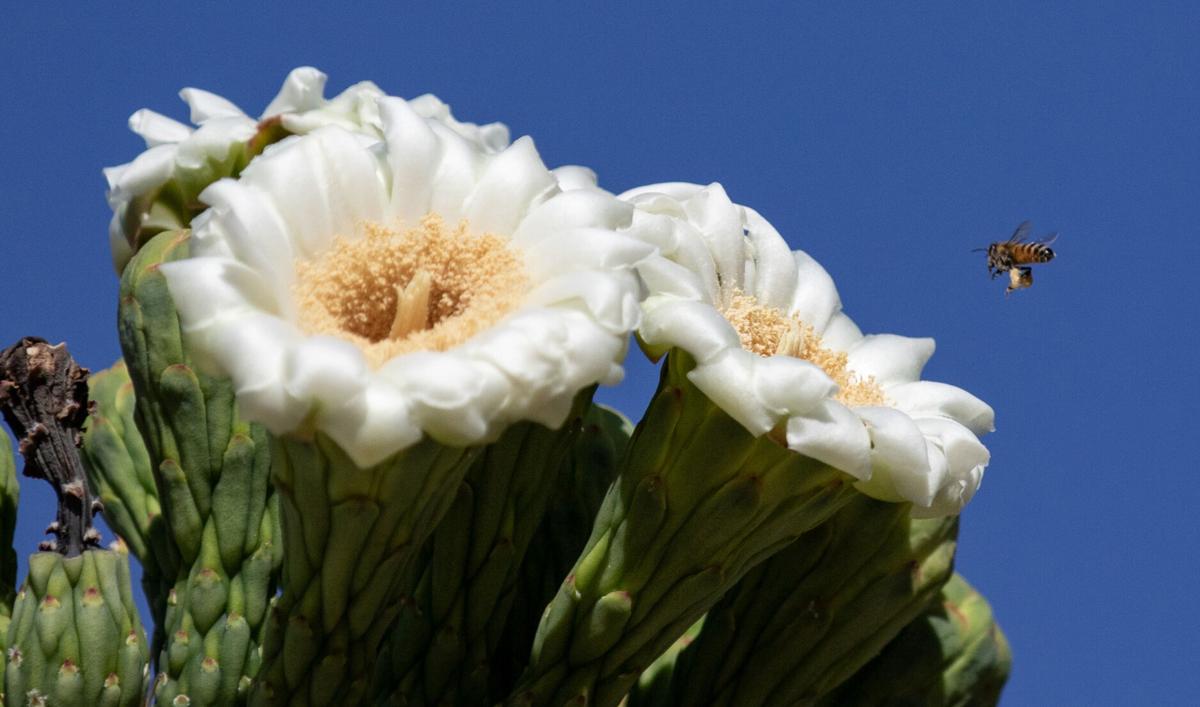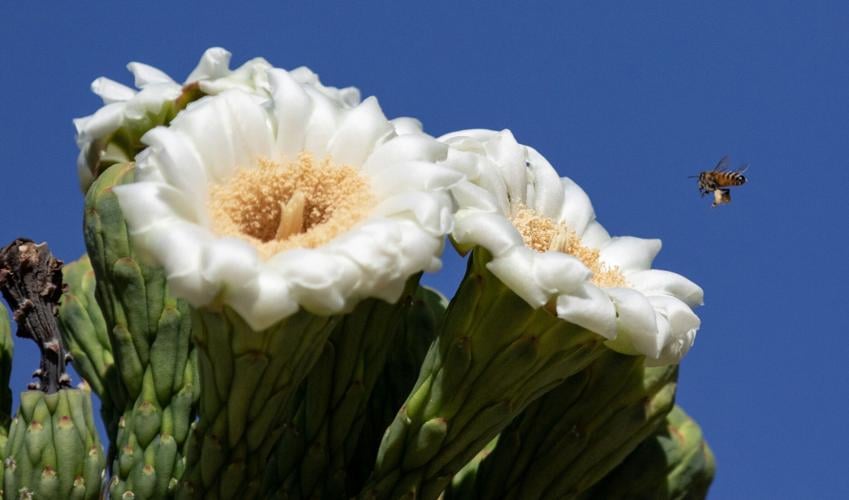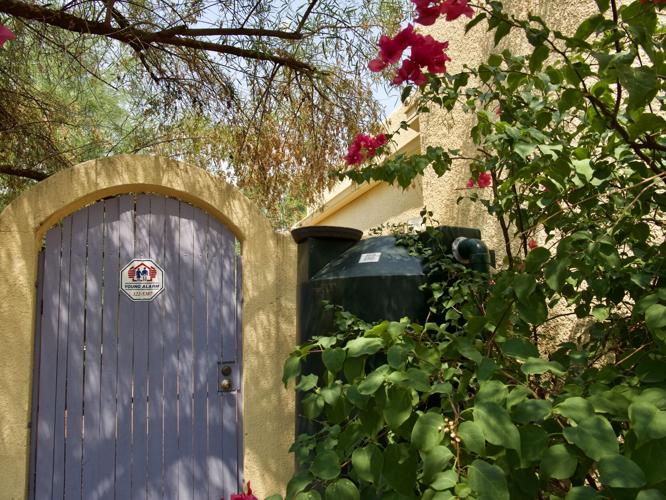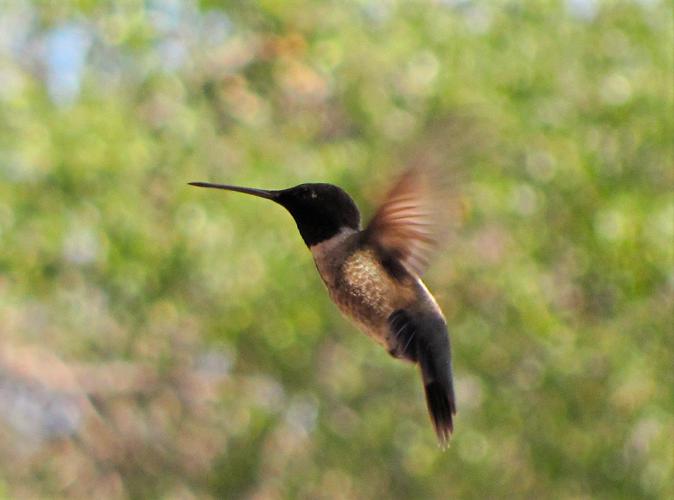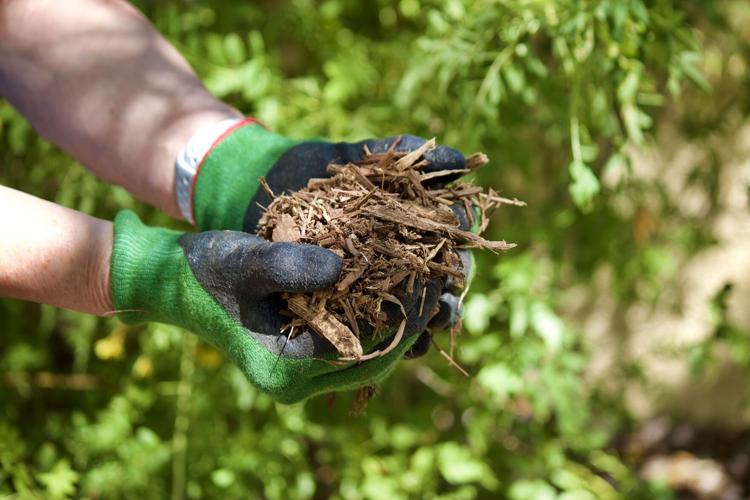Most gardeners love nature. We nurture plants, design little ecosystems, and grow food. We like to see animals enjoying our yard, and to feel like weтre still part of nature despite living in a developed area.
However, much of the activities centered around gardening are not very Earth-friendly. We add to pollution and carbon emissions by using our natural resources unwisely; we waste water falling for free from the sky, and we toil and heave bags of soil additives and fertilizers rather than using what we already have.
Mother Nature doesnтt require irrigation or trucking in pounds of soil amendments, and we can learn some tips from her and do our part to reduce our environmental impact. Here are some easy ways to do that. And the bonus is that it will save you both money and effort.

This rainwater harvesting tank holds 500 gallons and is tucked away behind a bougainvillea. Rainwater harvesting helps conserve water in your garden.
Reduce wasted water
Reduce your use of treated water. As much as of our treated residential drinking water goes to landscape plants. There are a number of ways to reduce your use of treated water: , using grey water , and planting desert-adapted plants. The and . The city also has a at home which includes outdoor watering tips. Also check out our helpful graphic to help figure out how to water more efficiently and effectively.
People are also reading…
You can read more about rainwater and grey water harvesting and irrigation in this collection of УлшжжБВЅ articles.
Use water-permeable hardscaping in your yard. This allows water to be absorbed into the soil beneath the hardscaping rather than flowing off and adding to the millions of gallons that end up in our rivers and water treatment plants. not only contributes to water waste and flooding, it also results in water pollution. You can use pavers, bricks, gravel and other similar materials instead of impermeable concrete and asphalt.

A hummingbird hovers in a garden.
Make your yard wildlife friendly
Plant natives. These plants are adapted to our climate and will require the least water and other resources, again saving you money. A number of nurseries in our area sell native plants, including:
- Ь§
- Ь§
Purchase plants and seeds that have not been treated with pesticides. Many systemic pesticides stay in the plant and in the environment for months to years. Neonicotinoid pesticides, in particular, are linked to s and other . They have concerning health effects on vertebrate animals such as , and . Practice to control any pests in your garden, and keep your plants healthyЬ§т thatтs their best defense against pests. You can get plants and seeds that havenтt been treated with pesticides at the following places:
- Ь§
- (a great source of wildflower seeds)
Reduce your nighttime outdoor lighting. It can affect both plants and animals. range from changing plant fruiting and blooming times to adverse effects on bird migration, , and . If youтre concerned about safety, note that . Use dark-sky friendly outdoor lighting and turn it off in the evenings, and use motion sensors for security lights so they switch off after a set period of time. The has some great resources and can take you through the steps to improving your outdoor lighting.

Shredded bark is one of many types of organic mulch that helps plants stay cool and moist in our УлшжжБВЅ desert heat.
Use resources wisely to reduce your carbon footprint
Plant trees. Trees provide a tremendous amount of benefits, which scientists refer to as ecosystem services. These benefits include cooling the surrounding area, helping manage water runoff, providing habitat, building your soil, and helping to filter out air pollutants. In the desert, the shade is perhaps the most important service. in an urban environment can reduce the air temperature underneath it by 25 degrees. The tree also reduces the air temperature around it by 9 degrees.
A tree also manages excess water falling on a property by slowing down the rainfall with its leaves and branches, soaking up excess water with its roots, and helping to create better soil underneath its canopy (which leads to better moisture retention in the soil). Tree leaves and other organic material falling under it act to enrich the soil in your garden and provide free mulch.
Appropriately placed trees around your house can by up to 50%. They can also serve as windbreaks, protecting your house and reducing heating bills. In addition, trees can reduce air pollution. All of these services are provided to us for free, if we choose the appropriate trees.
Mulch your soil. Your yard will benefit greatly from the leaf mulch and plant debris, so consider just sweeping and raking it under your trees so that it can nourish the soil and tiny organisms that live in it and support the entire ecosystem. It will also reduce the temperature of the soil around your house and protect the soil from losing lots of water to evaporation making it easier for plants to survive.
The most efficient way to get mulch is to use your own yard debris. You can chop up twigs into smaller branches and rake fallen leaves and other organic debris under your trees and into your planting areas. If you donтt have enough, you can frequently get free mulch from many tree-trimming companies. Ask your arborist if you can get some free ground up trees. Usually these get taken to a landfill or sometimes for composting, but why not use it in your yard as mulch?
In addition to all of these benefits, mulch is friendly to critical wildlife. It also provides a habitat for insects which are the bedrock of the food chain.
Get supplies in bulk rather than in individual plastic bags. This will save you money as well as reducing your plastic use. Unfortunately, so any reduction in your plastic use will make a large impact. offers bulk delivery on their mulch, compost and other products.Ь§
Some suppliers will take back their bags, too. , which sells plants and gardening supplies, and which sells compost and worm castings and other products, for example, will take back the bags they use to sell soil and compost or castings.
Donтt use peat moss or products that contain it. to add acidity and bulk to garden soil and to increase its water-holding capacity. Peat is mined from wetlands, and is not a renewable resource. The wetlands take thousands of years to recover, and for all intents and purposes that ecosystem is gone forever. The process of mining the peat moss also releases greenhouse gasses (such as methane) into the atmosphere. Coconut coir is a very sustainable alternative. It is a waste product of coconut harvesting and has been shown to .
Use compost or organic fertilizers such as instead of artificial fertilizers. Artificial fertilizers are not as nutritious for your plants, and tend to damage the microbiome of the soil. They also require a lot of fossil fuel energy to produce. Your own compost is best but you can also get locally produced compost at . , compost and other goodies also.
Reuse your nursery pots, or return them to the nursery for reuse. Black plastic pots are difficult to recycle. , , Ь§Nursery, , Ь§and are among the local nurseries that take these pots back and reuse them.
Avoid using gasoline-powered yard equipment. Lawn mowers and as well as the lethal gas carbon monoxide. They also produce , which has been shown to increase stress hormones in humans and may be linked to worsening cardiovascular health, diabetes and a host of other health issues.
In addition, leaf blowers emit carcinogens such as benzene and butadiene, as well as air particulates that can cause cardiovascular and lung problems. They also release large amounts of multiple air pollutants. A half-hour of leaf blower use emits , or from Texas to Alaska. If you have a landscaping company maintaining your yard, consider asking them not to use leaf blowers.
Be sure to look for our Ь§in the УлшжжБВЅ's Home+Life section on Sunday, April 23.Ь§
Sustainable gardens have a very positive impact on the environment and local wildlife.
For more gardening information and articles on gardening in the УлшжжБВЅ area, !
Do you have any gardening topics you'd like to see covered in the УлшжжБВЅ Garden Guide? Email me at dheusinkveld@tucson.com with your suggestions and questions. Thanks for reading!


